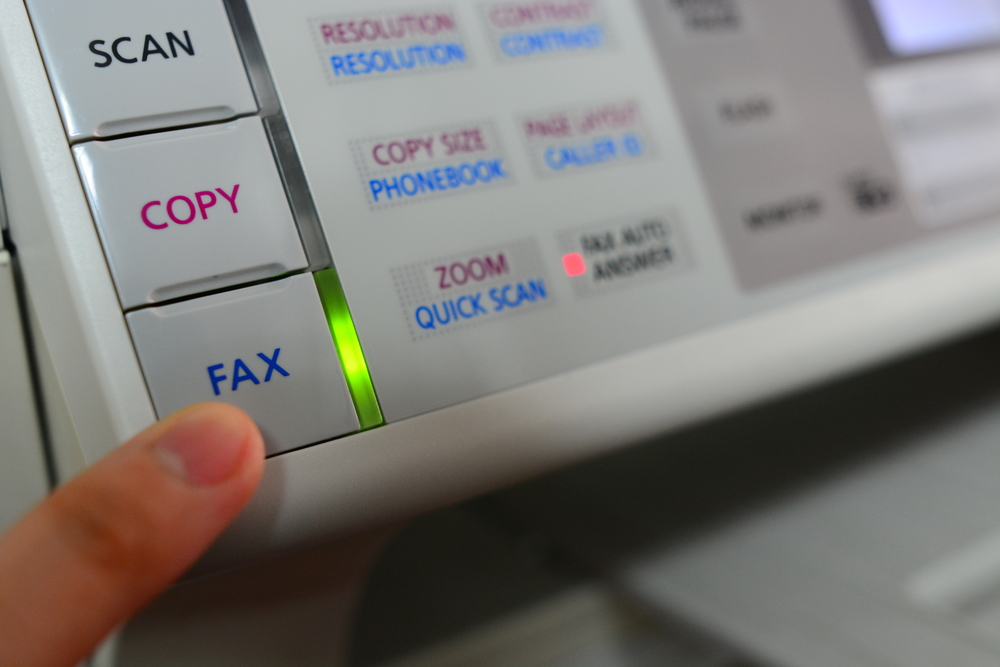NHS Trust launches campaign to eliminate fax machines from the health service
“We simply can’t afford to continue living in the dark ages”


An NHS Trust has pledged to remove 95% of the fax machines used in its hospitals by the end of the year, signalling more healthcare digital transformation.
Leeds Teaching Hospitals NHS Trust (LTHT) has marked its new ambitions with the launch of an "Axe the Fax" campaign that invites other Trusts from across the country to set similar targets for their own hospitals.
"We don't underestimate the enormity of the challenge to remove all the machines in such a short time frame, but we simply cannot afford to continue living in the dark ages," said the Trust's chief digital and information officer Richard Corbridge.
With recent research by the Royal College of Surgeons (RCS) revealing almost 9,000 machines are still used across the health service in England, the Yorkshire-based Trust becomes the first to commit to removing its legacy devices.
Under its plans, LTHT will aim to eliminate the majority of its 340 machines by 1 January 2019. With 20 already removed, the feasibility of removing a handful of others are now actively being explored.
The Trust will phase out 95%, as opposed to 100%, of its fax machines because it is still wary that a handful of people still rely on the legacy technology.
"The campaign aims to empower staff rather than disarm them and so far the feedback has been positive," Corbridge continued, adding: "Staff are recognising that on the one hand we have hugely innovative technology being implemented in the Trust and on the other we have technology that hasn't existed for decades in other industries.
Sign up today and you will receive a free copy of our Future Focus 2025 report - the leading guidance on AI, cybersecurity and other IT challenges as per 700+ senior executives
"The use of nhs.net is far more secure and safe than the use of faxes. We are aiming to help services safely decommission their faxes and move to email in the first instance and take it from there."
The Trust says it has raised awareness through internal communications as well as through social media using the #axethefax hashtag.
NHS Digital has also endorsed the campaign, with clinical director Dr Raj Kumar commending staff at LTHT for leading the campaign to banish fax machines from hospitals.
"In this day and age of real time digital communication, faxes have no place in our day-to-day delivery of secure and safe care for our patients," he said.
"Our congratulations to Leeds Teaching Hospitals for becoming an exemplar to all. We would hope that this initiative inspires any NHS organisations who may still be relying on fax machines for some communications, such as Clinical Commissioning Groups, GP practices or community care providers, to follow suit."
The spirit of the NHS Trust's new campaign reflects comments the health secretary Matt Hancock made on his appointment to the post in July.
"Emphatically the way forward is not to curb the technology - it's to keep improving it and - only if we need to - change the rules so we can harness new technology in a way that works for everyone: patient and practitioner," he said, announcing a 500 million cash injection for digital transformation.
"Not only can the right use of technology save time and money, it can improve patient safety."
Several NHS organisations have requested more information about how LTHT is embarking on its ambitions, with a dedicated email inbox also created to handle any enquiries. Any requests for information are allocated for action by programme managers, with any machines identified as being defunct removed.
The NHS' continued use of fax machines is concerning in light of research showing these legacy systems pose a significant security risk to organisations which deploy them. Check Point Research last month found that by sending a maliciously-crafted fax a malicious actor could infiltrate an organisation's network.
LTHT's computer services have already begun rolling out Managed Print Service (MPS) devices, with 47,905 communications sent electronically rather than via fax between April and August, the Trust says.
These devices will pave the way for the next phase of the programme as LTHT aims to move to scan-to-email only, with the fax option removed.
"As a clinician the major concern I have with fax, is has it been sent to the right machine, been read by the right person, and appropriate actions have been taken," said Andy Webster, a consultant in emergency medicine and LTHT's chief clinical information officer.
"That is why we are in the process of developing a modern auditable referral system that is embedded within our electronic health record".
IT Pro approached DHSC, and NHS England but did not receive a reply at the time of writing.

Keumars Afifi-Sabet is a writer and editor that specialises in public sector, cyber security, and cloud computing. He first joined ITPro as a staff writer in April 2018 and eventually became its Features Editor. Although a regular contributor to other tech sites in the past, these days you will find Keumars on LiveScience, where he runs its Technology section.
-
 What is Microsoft Maia?
What is Microsoft Maia?Explainer Microsoft's in-house chip is planned to a core aspect of Microsoft Copilot and future Azure AI offerings
-
 If Satya Nadella wants us to take AI seriously, let’s forget about mass adoption and start with a return on investment for those already using it
If Satya Nadella wants us to take AI seriously, let’s forget about mass adoption and start with a return on investment for those already using itOpinion If Satya Nadella wants us to take AI seriously, let's start with ROI for businesses